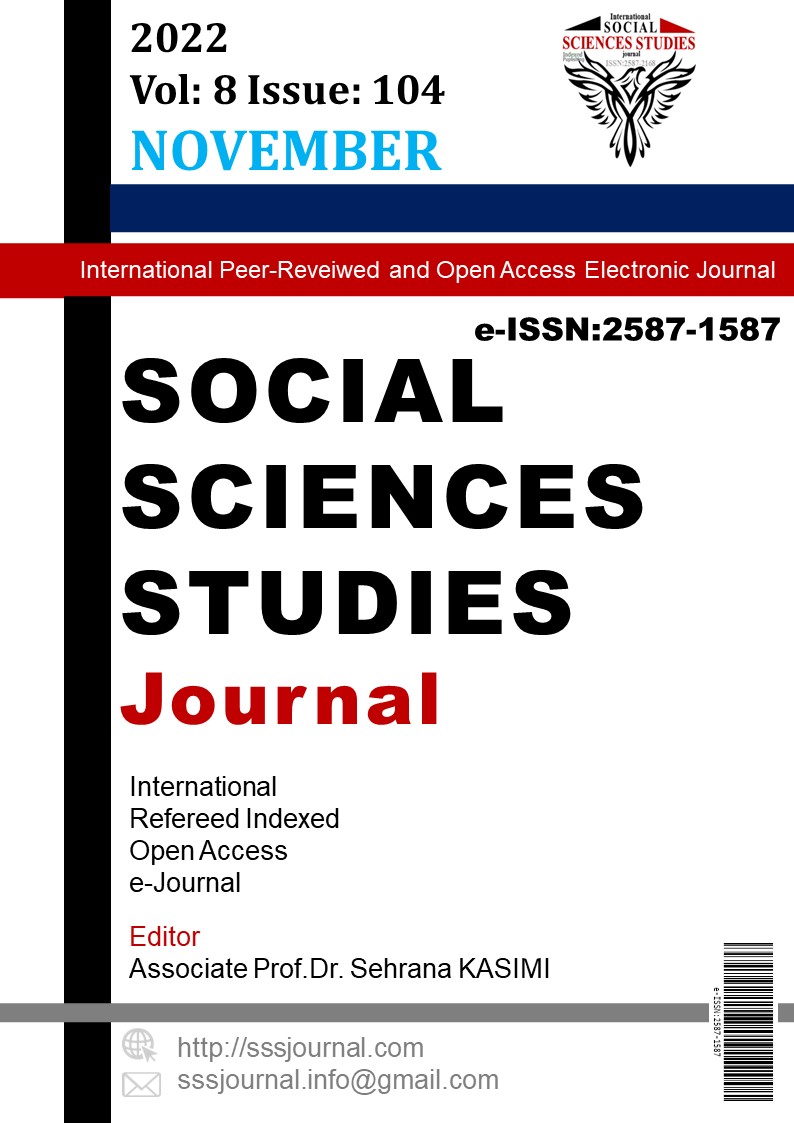Author :
Abstract
Modern felsefeye öncülük eden Descartes, duygular sorununda, kendisinden önceki dönemlere kıyasla adeta epistemik bir kopuş yaratır. O, düşünen (res cogitans) ve yer kaplayan (res extansa) töz anlayışına koşut bir biçimde insanı, ruh-beden ikiliği içinde ele alır; döneminde yaygın olan bilimsel yaklaşımların da etkisiyle bedensel açıFdan insanı mekanik bir varlık olarak konumlandırır. Salt akılsal bir töz olan ruh ile uzama yayılan beden arasındaki etkileşimi ise, beyindeki kozalıksı bezle kurmaya çalışır. O, duygular teorisini de ruh-beden ikilemi ve etkileşimi temeline oturtur. Descartes’ın temel savı, duyguların ruhun edilginlikleri ya da etkilenimleri (passion) olduğu şeklindedir. O, bu etkilenimi fizyolojik temelleriyle birlikte ortaya koymayı dener ve ayrıca tüm duyguları, hayret, sevgi, öfke, keder, arzu ve sevinç olmak üzere altı temel duyguya indirger. Bu temel duygulardan birbirine zıt ve birbirini besleyen tali ya da ikincil duygular şeması çıkarsar. Bu şema kapsamında duyguları ayrıntısıyla irdeler. Onun duygular sorununa yaklaşımı, hem modern felsefenin ayrım noktasına işaret etmesi hem de kendinden sonraki düşünürleri etkilemesi bakımından oldukça önemlidir. İşte bu makale, Descartes’ın duygulara yaklaşımını ana hatlarıyla ortaya koyduktan sonra, yaptığı duygu sınıflamasını ayrıntılı bir biçimde ele almayı amaçlamaktadır.
Keywords
Abstract
Descartes, who pioneered modern philosophy, creates an almost epistemic break in the problem of emotions compared to the periods before him. Parallel to his understanding of the thinking (res cogitans) and space-occupying (res extansa) substance, he deals with in the spirit-body duality; With the influence of the scientific approaches that were common in his period, positions the human being as a mechanical being in terms of body. It tries to establish the interaction between the soul, which is a purely mental substance, and the body, which extends to space, with the cocoon-like gland in the brain. He also bases his theory of emotions on the soul-body dilemma and interaction. Descartes' basic thesis is that emotions are passivities or passions of the soul. He tries to reveal this with its physiological bases and also reduces all emotions to six: surprise, love, anger, grief, desire and joy. From these basic emotions, he deduces the schema of secondary or secondary emotions that are opposite and feed each other. Within the scope of this scheme, he examines emotions in detail. His approach to the problem of emotions is very important in terms of both denoting the point of distinction of modern philosophy and influencing the thinkers after him. This article, after outlining Descartes' approach to emotions, aims to discuss his classification of emotions in detail.
Keywords
- 1. Aristoteles, Retorik, çev. Mehmet H. Doğan, Yapı Kredi Yayınları, İstanbul 1995.
- 3. Aristoteles, Doğa Bilimleri Üzerine (Parva Naturalia), çev. Elif Günce, Morpa Kültür Yayınları, İstanbul 2003.
- 4. Aristoteles, Nikomakhos’a Etik, çev. Saffet Babür, BilgeSu Yayınları, Ankara 2009.
- 5. Augustinus, Confessions, Westminster Press, USA 2010.
- 6. Aydın, H., Mitos’tan Logos’a Eski Yunan Felsefesinde Aşk, Bilim ve Gelecek Kitaplığı, İstanbul 2013.
- 7. Aydın, H., “Platon’da Erdemlerin Kaynağı Olarak Aşk”, Erdem Üzerine Tartışmalar (De Virtute Disputationes), ed.: A. Gürgen, Doğu Kütüphanesi Yayınları, 2020.
- 8. Aydın, H., “Aurelius Augustinus’ta Nedensellik Sorunu”, FLSF (Felsefe ve Sosyal Bilimler Dergisi), sayı: 25, 2018, 2018, (1-24).
- 9. Çilingir, L., “Platon’dan Tusi’ye Sevgi Siyaseti”, Temaşa Dergisi, sayı: 8, 2018, (73-96).
- 10. Descartes, Duygular ya da Ruh Halleri, çev. Çiğdem Dürüşken, Alfa Yayınları, İstanbul 2015.
- 11. Descartes, R., Felsefenin İlkeleri, çev. Mesut Akın, Say Yayınları, İstanbul 1995.
- 12. Fouillee, A., Descartes, çev. Atakan Altınörs, Eflatun Yayınevi, Ankara 2009.
- 13. Kurt, Ş. K., “Duyguların Tarihsel Serüveni ve Tarihte Duygular”, Uluslararası Toplum Araştırmaları Dergisi, sayı: 40, cilt: 18, 2021, (2822-2851).
- 14. Montaigne, Denemeler, cilt: I, çev. Engin Sunar, Say yayınları, İstanbul 2011.
- 15. Peters, F. E., Antik Yunan Felsefesi Terimleri Sözlüğü, çev. Hakkı Hünler, Paradigma Yayınları, İstanbul 2004.
- 16. Platon, Symposion (Şölen), çev. E. Çoraklı, Alfa Yayınları, İstanbul 1995.
- 19. Wolzer, R., “Aristotle, Galen and Palladius on Love”, Greec into Arabic, Harvard Üniversity Press, Cambridge 1962.
- 20. Solomon, R. C., Duygulara Sadakat (Hislerimiz, Gerçekte Bize ne Anlatıyor?), çev. Funda Çoban, Nika Yayınları, Ankara 2016.
- 21. Yazıcı, A.- Yazıcı, S., “Stoacı Duygu Kuramının Ontolojik ve Epistemik Temelleri’’, Posseible Düşünme Dergisi, Sayı: 14, 2019, (7-17).
- 22. Yazıcı, A., “Thomas Aquinas’ın Duygu Felsefesi’’, Akademik Sosyal Araştırmalar Dergisi, Sayı: 38, 2016, (34-42).





